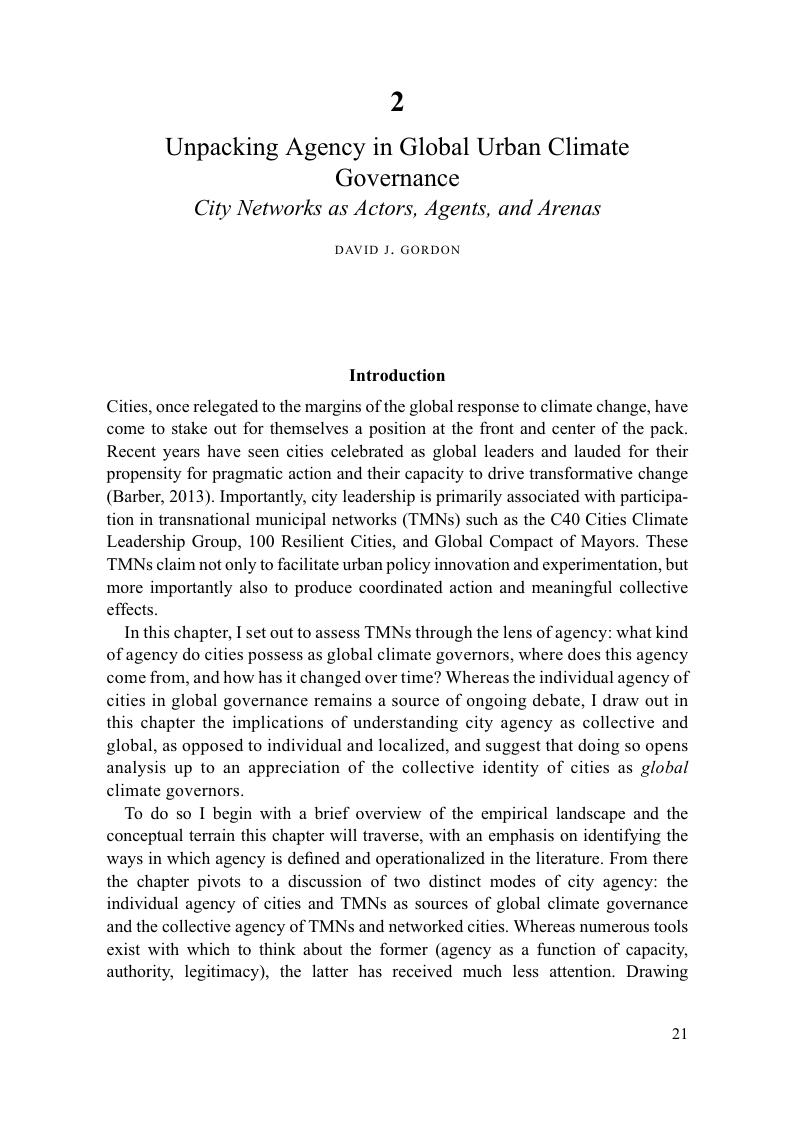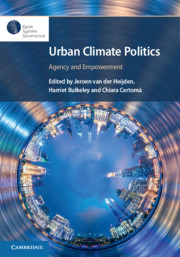Book contents
- Urban Climate Politics: Agency and Empowerment
- Series page
- Urban Climate Politics
- Copyright page
- Contents
- Contributors
- Acknowledgements
- 1 Promises and Concerns of the Urban Century
- 2 Unpacking Agency in Global Urban Climate Governance
- 3 Empowerment and Disempowerment of Urban Climate Governance Initiatives
- 4 Transnational Municipal Networks and Cities in Climate Governance
- 5 Making Climates through the City
- 6 Cross-Movement Alliances as a Novel Form of Agency to Increase Socially Just Arrangements in Urban Climate Governance
- 7 The Politics of Data-Driven Urban Climate Change Mitigation
- 8 Urban Planning for Sustainability and Justice
- 9 Unpacking the Black Box of Urban Climate Agency
- 10 From Public to Citizen Responsibilities in Urban Climate Adaptation
- 11 Agency and Climate Governance in African Cities
- 12 The Effects of Transnational Municipal Networks on Urban Climate Politics in the Global South
- 13 The Politics of Urban Climate Futures
- Index
- References
2 - Unpacking Agency in Global Urban Climate Governance
City Networks as Actors, Agents, and Arenas
Published online by Cambridge University Press: 29 April 2019
- Urban Climate Politics: Agency and Empowerment
- Series page
- Urban Climate Politics
- Copyright page
- Contents
- Contributors
- Acknowledgements
- 1 Promises and Concerns of the Urban Century
- 2 Unpacking Agency in Global Urban Climate Governance
- 3 Empowerment and Disempowerment of Urban Climate Governance Initiatives
- 4 Transnational Municipal Networks and Cities in Climate Governance
- 5 Making Climates through the City
- 6 Cross-Movement Alliances as a Novel Form of Agency to Increase Socially Just Arrangements in Urban Climate Governance
- 7 The Politics of Data-Driven Urban Climate Change Mitigation
- 8 Urban Planning for Sustainability and Justice
- 9 Unpacking the Black Box of Urban Climate Agency
- 10 From Public to Citizen Responsibilities in Urban Climate Adaptation
- 11 Agency and Climate Governance in African Cities
- 12 The Effects of Transnational Municipal Networks on Urban Climate Politics in the Global South
- 13 The Politics of Urban Climate Futures
- Index
- References
Summary

- Type
- Chapter
- Information
- Urban Climate PoliticsAgency and Empowerment, pp. 21 - 38Publisher: Cambridge University PressPrint publication year: 2019
References
- 3
- Cited by



